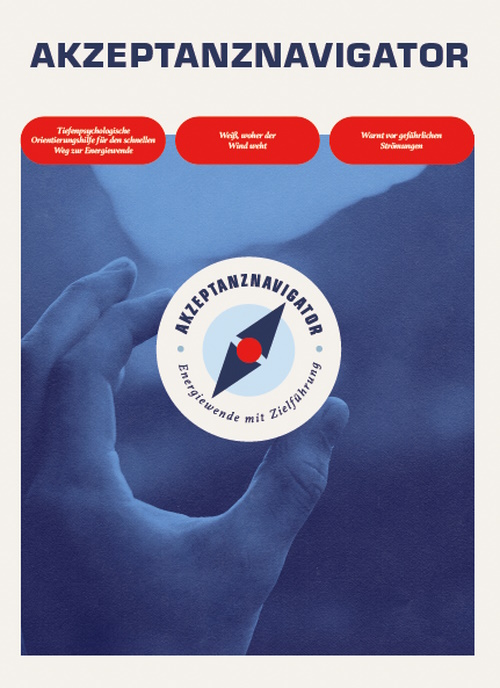Ensuring Strategic Planning Assurance with the Acceptance Navigator for Renewable Energy Projects
Possible resistance is identified in advance
In a pivotal era of energy transition, where the swift shift to renewable energy is imperative, investors and project developers encounter multifaceted challenges in realizing infrastructure projects. Despite the undeniable benefits of clean energy generation and long-term economic viability offered by renewables, they often contend with resistance and obstacles that can jeopardize the success of their investments.
Various factors, such as historical reasons, social dynamics, and environmental concerns, contribute to this resistance. In response to these challenges, psychologists from concept m and communication consultants from crossrelations have collaboratively developed an innovative solution: the Acceptance Navigator. This product aims to proactively identify potential resistance during the planning phase, providing crucial planning security for investors and project developers.
Understanding Motivations and Shaping Project Success
The Acceptance Navigator initiates its work early in the planning phase. By identifying the true motivations and attitudes of local communities toward the project, it enables the early identification of potential conflict issues. Armed with this insight, both the project design and communication strategy can be tailored accordingly. For investors and project developers, this translates to enhanced security as they gain a comprehensive understanding of what to expect.
Synergizing Social Research and Sustainability Communication
The Acceptance Navigator was developed through a longstanding partnership between concept m’s psychological market and social researchers and crossrelations brandworks, a communications consultancy specializing in sustainability. Both entities have extensive experience in guiding transformation processes within the energy markets.
Navigating Acceptance through Group Discussions and Psychological Evaluation
Product manufacturers show us how this works in practice: Through intensive group discussions, they uncover consumer wishes, shaping both product functionality and design. Communication strategies are then aligned with psychological evaluations, providing retailers and manufacturers with the confidence needed to make informed decisions and ensuring the success of their new developments.
Dirk Ziems, founder and partner of concept m, reflects on these setbacks:
“Many of these costly defeats, reaching into the millions, could have been averted had project sponsors accorded the psychological sensitivities of citizens the same meticulous attention as they did to the technical assessment of the site and the regulatory landscape.”

Addressing Deficiencies in Acceptance Communication
A critical examination of unsuccessful projects unveils notable deficiencies in communication:
Lack of transparency: Citizens are only presented with the key aspects of an already well-advanced planning project at a late stage, leading to a lack of transparency in the process.
Questionable securing of land: Residents receive belated information about the securing of required areas, fostering perceptions of collusion between municipal and private interests.
Actors with a lack of trust: There’s a growing expectation among citizens for fair information regarding both burdens and potentials, particularly from municipalities, project developers, and operators. Mayors play a crucial role in active mediation, as the distance from mistrust to a citizen vote is short.
Debatable benefits for citizens: While climate protection remains a vital drive for acceptance, citizens also seek financial benefits. Opportunities such as regional citizen electricity tariffs or financial participation are often introduced or monetized too late, hampering the overall acceptance of the project.


Dirk Ziems, founder and partner of concept m [Link]


